You’ve probably heard of Lake Titicaca in Peru, and you might be wondering whether it’s worth visiting. As a popular destination for international tourists and locals, it’s easy to see the appeal of visiting Lake Titicaca. We will tell you all there is to know in our Travel Guide for Lake Titicaca.
Firstly, we don’t specialize in popular spots. In fact, some areas of Lake Titicaca are so popular these days that we worry the area is losing its authenticity! But fear not: we know where to go to capture the essence of this beautiful destination and its unique cultures.
Native communities along the shores of Lake Titicaca still live a very traditional lifestyle. Fortunately, there are still many places where you can experience the lake at its best: peacefully, mindfully, and while leaving a positive impact on its inhabitants.
Bookmark this travel guide for Lake Titicaca & Puno if you’re considering a visit. Puno is the closest city and a common launching point for traveling to Lake Titicaca.
When you’re ready to plan your trip, we’d love to chat about a custom Peru itinerary to give you the most perfect plan for your unique travel style. Let’s talk and craft a responsible trip to this beautiful country!
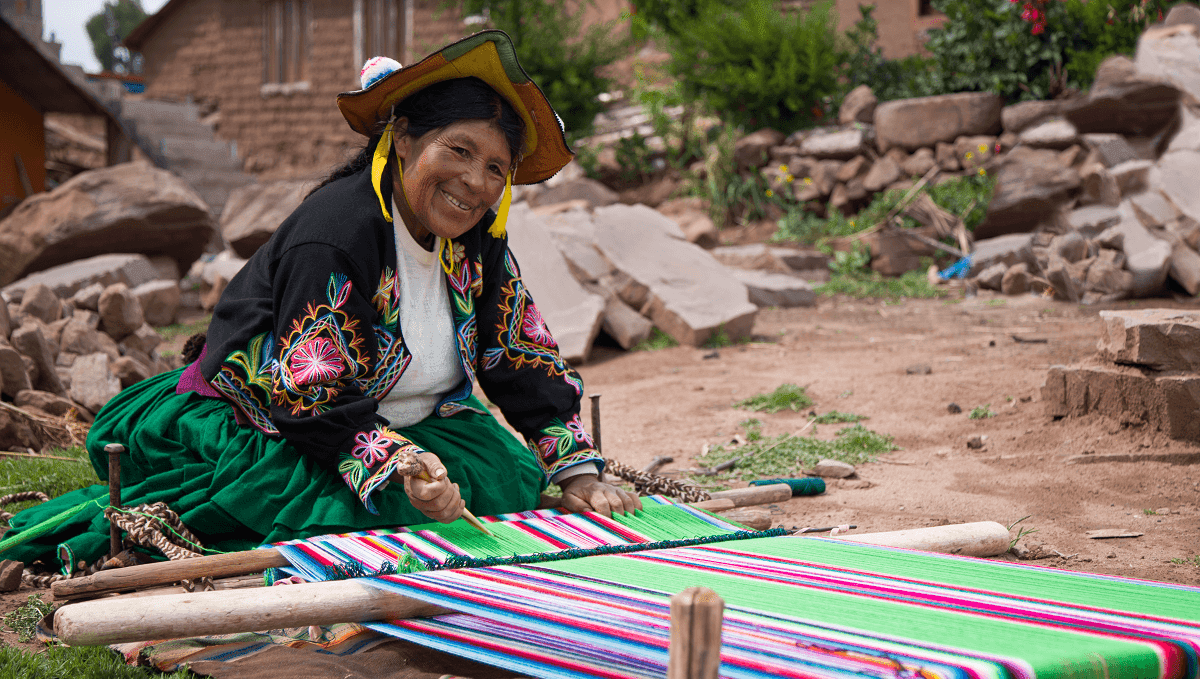
Prepare for a Trip to Lake Titicaca
Lake Titicaca lies 3,800 meters (12,500 ft) above sea level and is home to some of Peru’s most unique cultures. Situated in southern Peru across the border with Bolivia, this world-renowned body of water is the highest navigable lake in the world.
It’s essential to be prepared for the altitude at Lake Titicaca and make sure you stay healthy.
The altitude also influences the climate, of course. The temperature difference between day and night is sizeable, especially in the dry season.
Night (and morning) temperatures fluctuate around the freezing point. Meanwhile, during the day in the sun, you might want to wear shorts. The sun is also brutally intense, so you’ll also need strong sunscreen!
Ensure you’re well prepared and check our recommendations on what to take and leave.
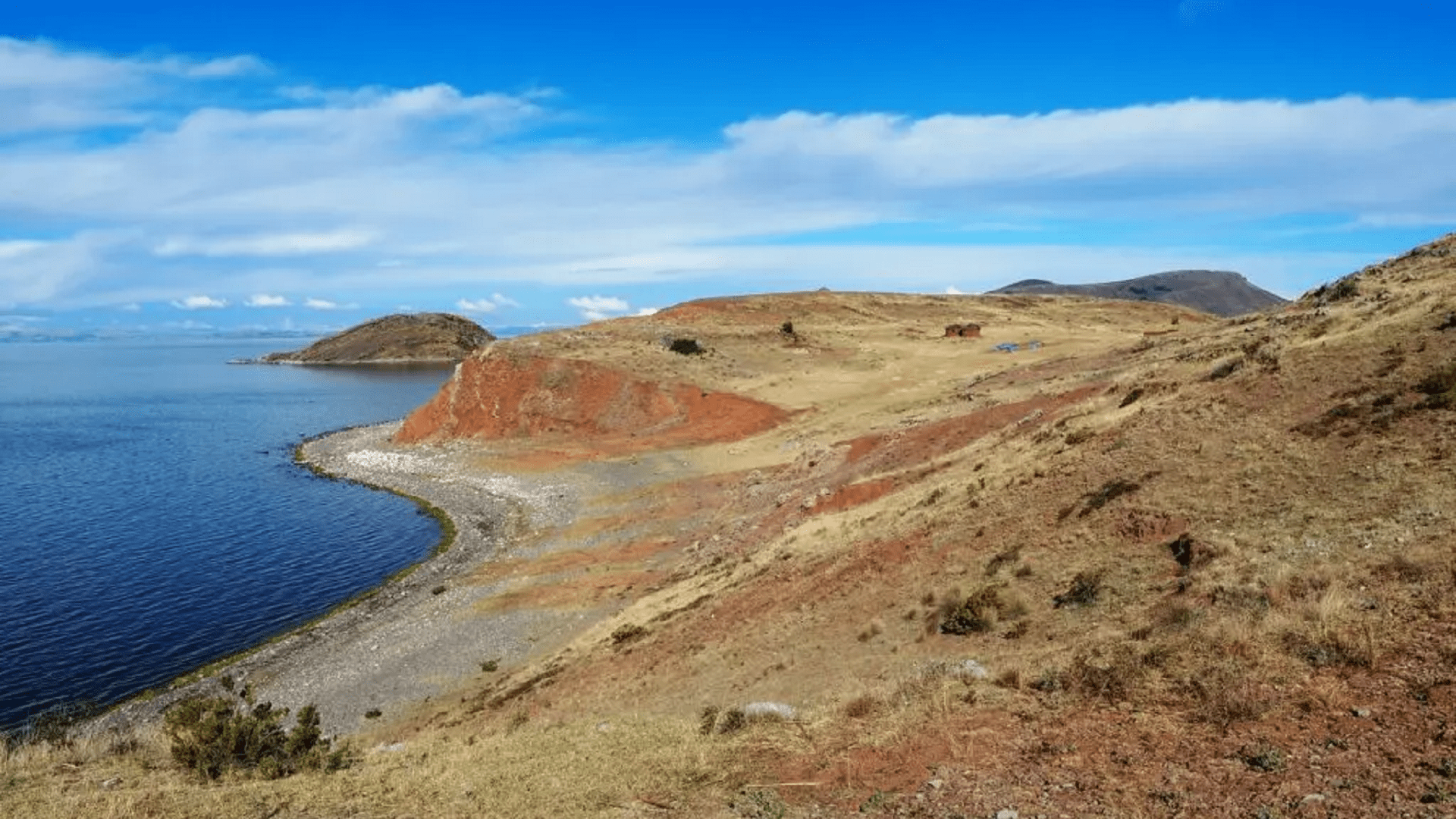
Things to Do Around Lake Titicaca
In general, thanks to its unique cultures, Lake Titicaca is the perfect place to enjoy Community-Based Tourism with one of our partner communities. So we recommend you minimize your time in Puno city and get out there to have a local experience!
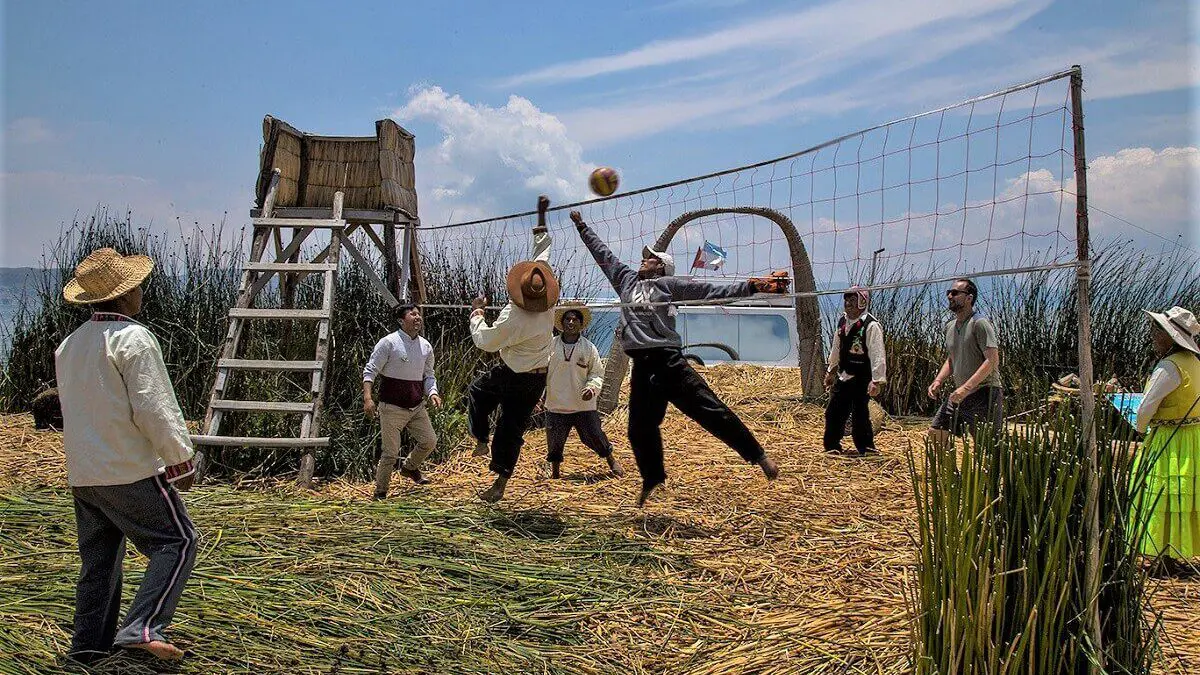
For those of you on a budget, some budget-friendly tours combine the convenience of budget group travel to the island of Taquile with the privacy and unique experience of staying with your own selected host family. The longer your stay, the better!
Don’t have much time? Only a day on the lake can be done, but we recommend an inverse trip so you avoid the masses as much as possible.
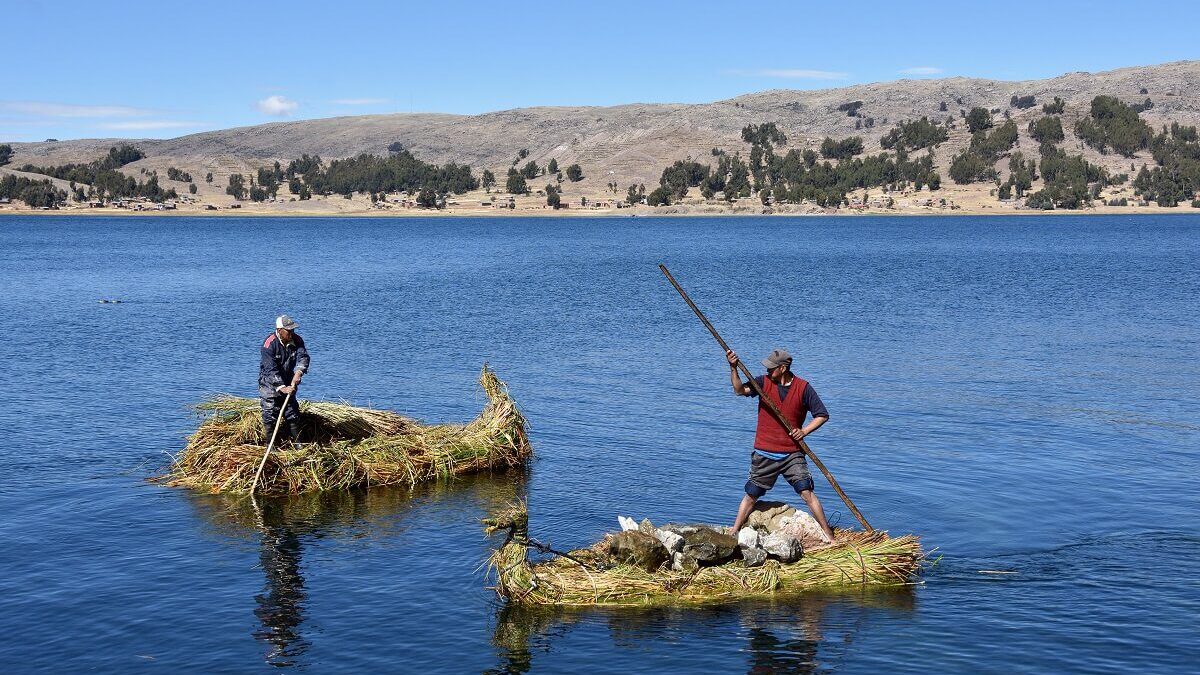
Get Off the Beaten Path – Travel Guide for Lake Titicaca
If you’re looking for a more intimate experience with the lake and its inhabitants, we would definitely recommend visiting the communities on the Capachica peninsula. This can be combined with the less visited floating reed islands of Uros Titino. The programs are private and come in several versions, like more active kayak programs or those that combine the Capachica peninsula with the Amantaní island.
Speaking of kayaks, did you know that you can also row Lake Titicaca in a Polynesian canoe? It’s a unique way to get up close and personal with the lake and its flora and fauna.
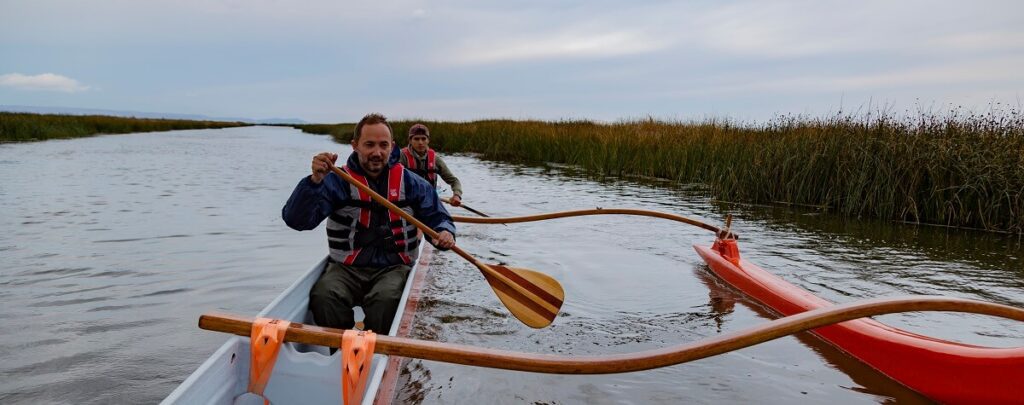
There are several fantastic alternative destinations on Lake Titicaca. We highly recommend the mystic gate of Amaru Muru, the ancient Inca Path Qhapac Ñan, and the monumental tombs of Sillustani.
While the Floating Islands on Lake Titicaca are famous, there are lesser-visited ones you should consider. The Chimu Floating Islands offer a particularly excellent way to experience all these attractions in an authentic, responsible manner.
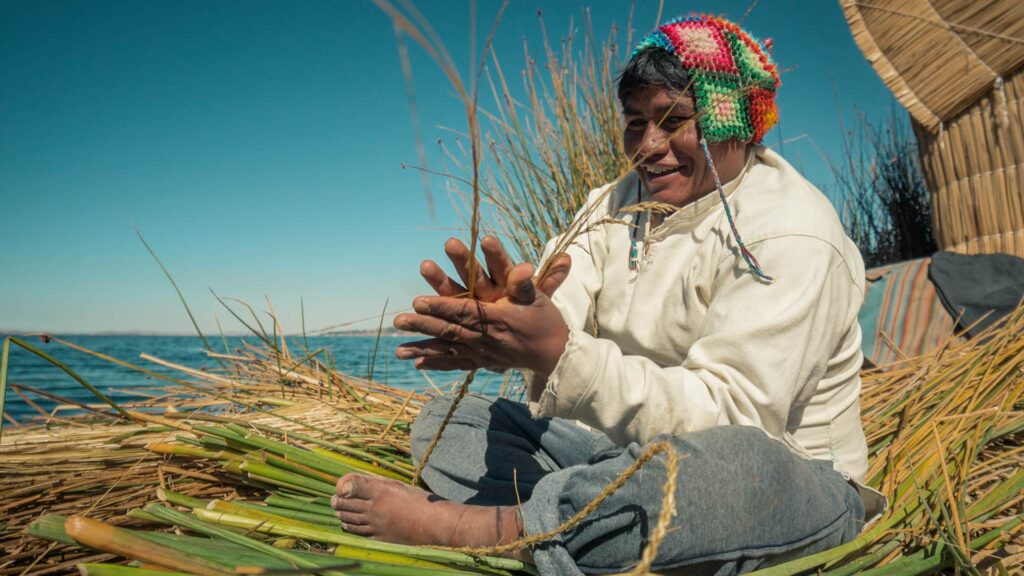
The Surprise of the Altiplano: Lampa
Another lesser-known Peru destination near Lake Titicaca is Lampa. You might have never heard of Lampa before, but don’t be fooled! Lampa is a fantastic destination for those who enjoy going off the beaten track and traveling into Spanish history.

The town has an imposing church with a famous, exact replica of the Pietà sculpture by Michelangelo. This was used to repair the original sculpture after being attacked in 1972.
Staying in Lampa can give you a glimpse of the old day. But it also might take you to a top alpaca farmer, gigantic canyons, and the mysterious Puya Raymundi flowers that grow up to 14 meters high!
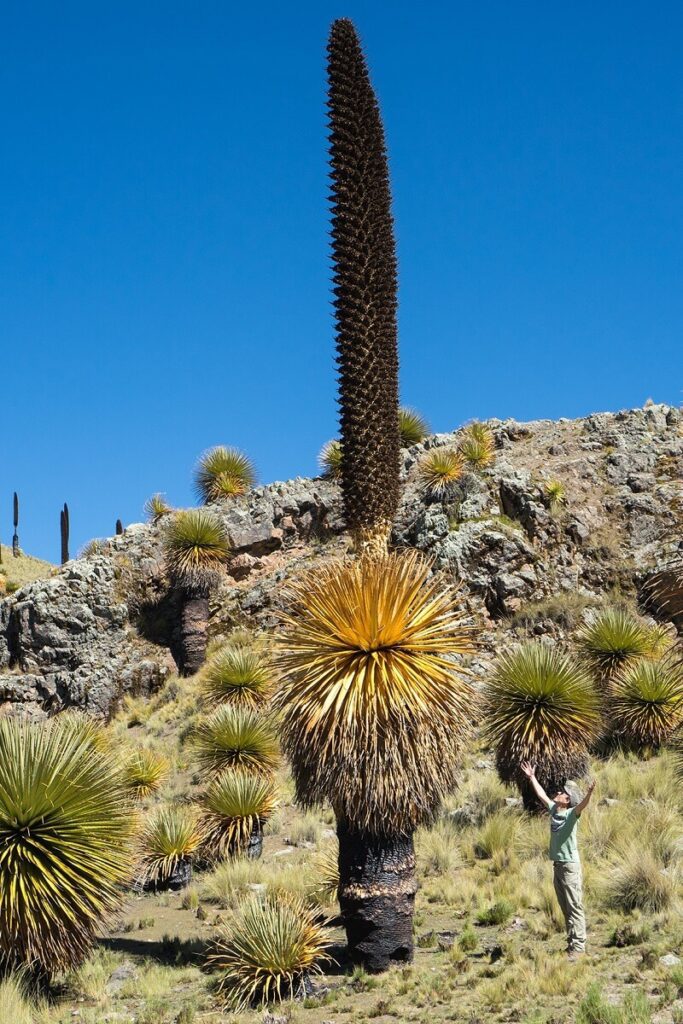
Lampa is a popular destination on our self-drive itineraries through southern Peru for its combination of attractions and unique routes. You can read more about it in this blog on Slow Travel in the Puno area
Connect to Puno from Other Peru Destinations
“How to get there?” is an important part of our Travel Guide for Lake Titicaca. Most travelers will arrive at Lake Titicaca from the Colca Canyon, making the most sense in a general itinerary through Southern Peru.
We have several multi-day programs that will take you from Arequipa through the Colca Canyon and drop you off at the Lake’s border. The travel time from the Colca Canyon to Puno is around seven hours on those buses, including several stops.
From Puno to Cusco
You can also arrive in Puno straight from Arequipa or Cusco; in both cases, the bus takes around 7 hours.
There are also comfortable tourist buses available on the latter route that take all day but make five excellent stops along the way, including one for lunch. We sometimes include this option in our custom-made itineraries; it’s a convenient way to travel between Puno and Cusco.
You might also like our Puno to Cusco trip… done the Impactful way!
From Puno to Bolivia
You can also travel from Puno to Bolivia via two main routes operated with the recommended Bolivia Hop tour buses or regular buses.
Please note that most buses aren’t 100% direct: you will have to cross the border on foot and board another bus on the other side.
Direct buses arrive in La Paz in 7 hours; Bolivia Hop takes a more excellent route and includes a long break in Copacabana, but it’ll cost you the whole day.
From Puno to Lima
If you’re traveling from Puno to Lima, the Juliaca airport connects the Lake Titicaca area with the capital (as well as with Cusco).
However, we would only recommend you use a flight if you’re flying back to Lima at the end of your Peru trip. The few hours you’d save flying to Cusco (or to Arequipa) don’t weigh up against the impact of the flight.
On a related note, flying from Lima to Lake Titicaca at Juliaca might cause severe altitude-related problems. Lake Titicaca, for sure, is not the destination where you would start your Peru itinerary!
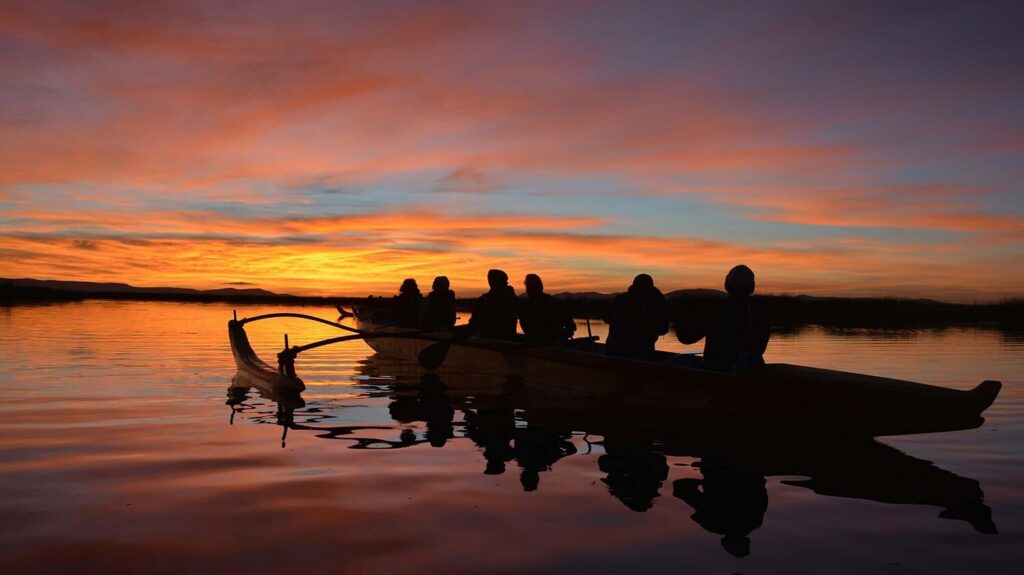
Travel to Lake Titicaca, Puno, & Beyond the Easy Way!
We could go on and on about visiting Lake Titicaca and Puno. But, at the end of the day, our local insights are only as valuable as the planning skills applied to them. If you’re doing extensive research to plan your trip, we’re sure you’re finding yourself with pages of information alongside plenty of questions.
Planning a trip to Lake Titicaca can be easier than all that! Take a look at our services for custom Peru itineraries. Impactful Travel has more than a decade of experience in tailor-making unique travel experiences throughout our beautiful country. We’ll take all the research, stress, and planning work out of your hands and leave you to just look forward to your dream trip.
We especially love a challenge, so go ahead and tell us all the things you want to do in Peru! We’d love to try to make it all happen.


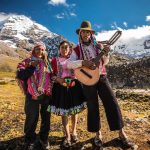

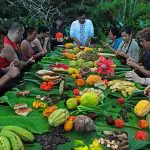
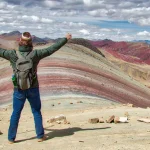

[…] Lake Titicaca is definitely one of Peru’s highlights and a must-see for most people who have decided to travel to this vast country. Situated half in Peru, and half in Bolivia, it is presumably the largest lake in South America and the highest navigable lake in the world, sitting at an altitude of 3.810 meters (12.500 feet). […]